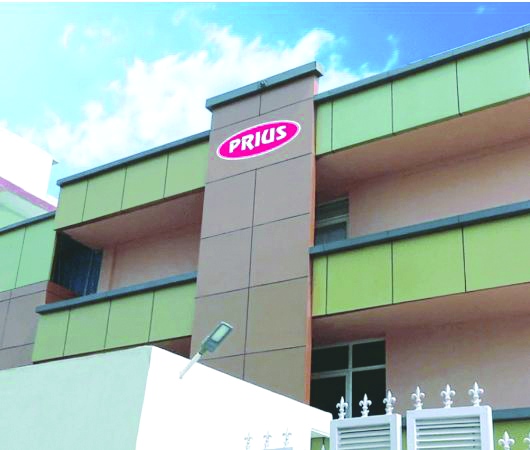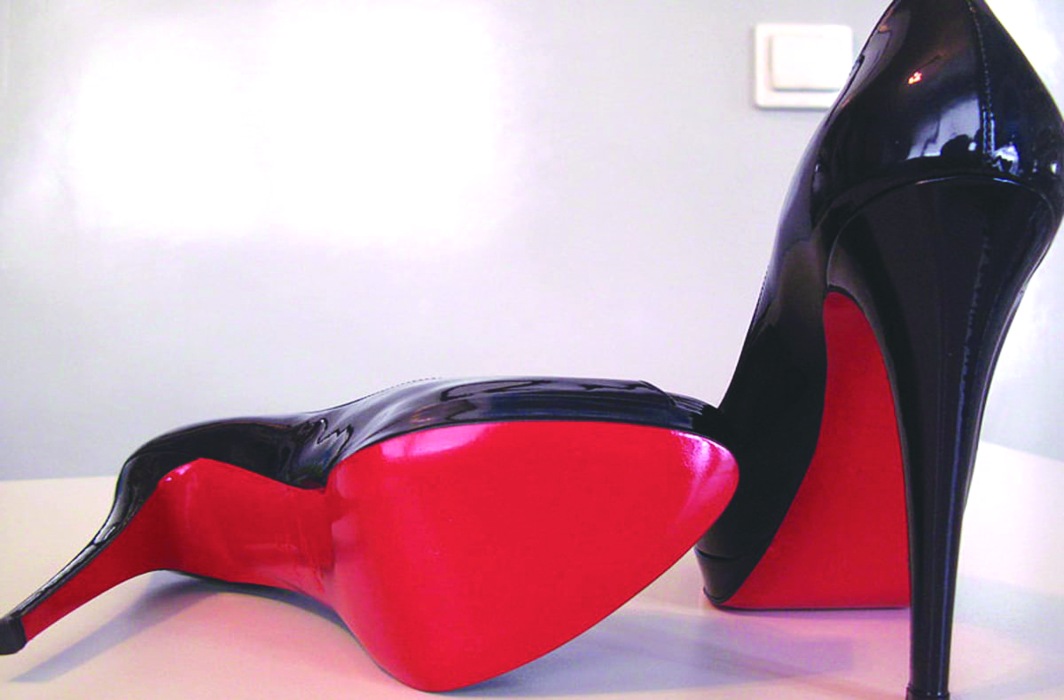A case filed by this reputed carmaker against a local company saw it losing the suit in the apex court, which said that trademark rights are territorial, not global
~By Venkatasubramanian
The aim of a trademark is to defend the goodwill of a company. The law on trademark aims to prevent one company from trading on another’s reputation earned over the years. The Supreme Court had, while interpreting the law on trademark, held earlier that a man is not to sell his own goods under the pretence that they are the goods of another man. A trader needs protection of his right of prior use of a trademark as the benefit of the name and reputation earned by him cannot be taken advantage of by another trader by copying the mark and getting it registered before he can get the same registered in his favour. In legal terms, such action is called “passing off”. The action of passing off is premised on the rights of the prior user, who has generated goodwill, and is unaffected by any registration provided under the trademark act.
The Supreme Court bench of Justices Ranjan Gogoi and Navin Sinha on December 14 held that courts must determine if there has been a spillover of the reputation and goodwill of the mark used by the claimant who has performed the passing off action. In other words, the bench held that there must be adequate evidence to show that the plaintiff had acquired substantial goodwill for his product in the market.
TOYOTA VS PRIUS
In the present case, Toyota Jidosha Kabushiki Kaisha instituted a suit, impleading M/s Prius Auto Industries Ltd, in the Delhi High Court and seeking a decree of permanent injunction for infringement of trademark, passing off and for damages in order to protect the trademarks “Toyota”, “Toyota Innova”, “Toyota Device’’ and “Prius” of which Toyota claimed to be a prior user.

Toyota claimed an enviable goodwill and reputation as one of the foremost automobile manufacturers in the world. It had acquired registration in India in different classes for all its trademarks except the “Prius” during 1989-2003. The company launched the world’s first commercial hybrid car called “Prius” in Japan in 1997, and in other countries like the UK, Australia, the US, and so on during 2000-01. The company also claimed registration of “Prius” as early as 1999 in Japan, and eventually in other countries.
In India, the car was released in 2009, and until then, the company had not obtained registration of the mark “Prius”. The car was displayed at car shows in Delhi and Bengaluru in 2009 and formally launched in India in 2010.
Toyota claimed that various advertisements and news reports about “Prius” and publication in car magazines in India and across the globe have made it a well-known trademark. In 2009, Toyota discovered that the defendants got the trademark “Prius” registered in 2002-2003 for all types of auto parts and accessories, but that they had also been using the same in carrying out their trade in those products.
Toyota, therefore, approached the Trade Mark Registry for cancellation of the registered trademark of the defendants, followed by the filing of the suit. Toyota alleged that the defendants had been using its trademarks without any authorisation, thereby deriving an unfair advantage which it had earned over a period of time across the globe.
The defendants argued that as they were in the business of manufacturing spare parts of automobiles, they were entitled to indicate the cars for which the spare parts had been manufactured by displaying the same name on the packaging of the products. The use of the words “Toyota”, “Toyota Innova” and “Toyota Device” were, therefore, for the purpose of honest use in an industrial matter and thus, protected under Section 30 of the Indian Trade Marks Act, 1999, the defendants contended.
The case, which went first to a single judge of the Delhi High Court, Justice Manmohan Singh, subsequently went to a division bench of the High Court and then the Supreme Court.
The defendants submitted to the Supreme Court that they had conceptualised their attempt as “pehela prayas” (meaning first attempt). It was on that basis that they had adopted the name “Prius” and got the same registered in 2002. Toyota contested the claim.
What is an infringement?
Section 29(2) of the Indian Trade Marks Act, 1999, explains what constitutes an infringement of trademark. If a trademark is used by a person who is not its registered proprietor, it is likely to cause confusion on the part of the public if the person who so infringes produces goods/services which are similar to the ones covered by the registered trademark.
Section 29(8) of the Act stipulates that a registered trademark is infringed by any advertising of that trademark if it takes unfair advantage of and is contrary to honest practices in industrial and commercial matters; or is detrimental to its distinctive character; or is against the reputation of that trademark.
SETBACK FOR DEFENDANTS
In 2009, the trial judge of the Delhi High Court had granted ex-parte ad interim injunction restraining the defendants from using the registered trademarks of Toyota and Prius. In 2010, the division bench of the High Court vacated the injunction on the basis of certain conditions.
The defendants were restrained from using the registered trademarks except for identifying that their products could be used in these cars. Second, the defendants were to ensure that the words and logos “Toyota” and “Innova” were not written in the same font as used by the plaintiff. Third, the defendants were asked to replace the words “Genuine Accessories” with “Genuine Accessories of Prius Auto Industries Limited”. Fourth, the defendants were to ensure that the words “the vehicle name” (i.e. the appellant’s trademark) was used for identification only.
Toyota alleged violation of these conditions by the plaintiff during the hearing of its suit in the High Court. On July 8, 2016, Justice Singh of the Delhi High Court held that the acts of the defendants constituted infringement on Toyota’s trademarks and amounted to passing off their goods under the name “Prius”. Justice Singh held that Toyota was the first user of the trademark “Prius”, having marketed its hybrid car all over the globe under this name from 1997. He reasoned that the goodwill and reputation of Toyota had permeated to India as far as the mark “Prius” was concerned. He, therefore, held that Toyota was entitled to an injunction against the defendants. Punitive damages quantified at Rs 10 lakh were awarded in favour of Toyota.
The division bench of the Delhi High Court, however, reversed Justice Singh’s judgment, forcing Toyota to file an appeal in the Supreme Court. Justice Manmohan had reasoned that the trademark “Prius” had acquired excellent global goodwill which had already spilled over to India much before the direct sales of the car in India in 2010. The fact that Toyota’s websites were visited by many Indians seeking information about Prius cars was held by him as evidence of the fact that people in India were aware of the car and its popularity. The exhibitions of the car held in India and other countries, various advertisements published in automobile magazines and cover stories published in international magazines and journals were taken into account by him to hold that the car had a stellar reputation in the world market, including India. The availability of information regarding the car on information-disseminating portals like Wikipedia and the online Britannica dictionary was also considered by him. Consequently, he held that the physical presence of the car in India at a later point of time was immaterial.
However, the division bench of Justices Pradeep Nandrajog and Yogesh Khanna of the High Court held that prior use of the trademark in one jurisdiction would not ipso facto entitle its owner or user to claim exclusive rights to the said mark in another dominion. It was, therefore, necessary for the plaintiff in the case to establish that its reputation had spilled over to the Indian market prior to April 2001, it held.
The bench found that not only was the publicity and advertisement surrounding the launching of the product by Toyota in the international market scanty, internet penetration in India prior to April 2001 was limited. Therefore, it said that it could not be deduced that Toyota had established its goodwill and reputation in the Indian market, which the defendants had taken advantage of.
The test, the bench said, would be one of actual confusion among the consumers, and not probability of confusion. Toyota, it said, failed to show that the consumers were misled by the use of trademark “Prius” by the defendants.
The Supreme Court, however, disagreed with this conclusion, and held that the burden of establishing actual confusion as distinguished from possibility thereof ought not to be placed on the claimant. The likelihood of confusion would be a surer and better test of proving an action of passing off by the defendants, the Supreme Court held.
Senior counsel P Chidambaram, representing Toyota in the Supreme Court, had submitted that recognition and reputation of a trademark is not contingent upon the actual sale of goods in India bearing the mark in question. Advertisement and promotion of the mark through different forms of media is sufficient to establish reputation and goodwill within a particular geographical area, that is, India, he told the Court.
The Supreme Court chose to agree with the High Court division bench’s conclusion that Toyota failed to establish goodwill or reputation in India. The Supreme Court cited Toyota’s delayed approach to the courts, which it held, cannot be allowed to work to the prejudice of the defendants, who had kept on using its registered mark to market its goods during the long period of silence maintained by the plaintiff.
Louboutin wins case
On December 12, Justice Mukta Gupta of the Delhi High Court decided another trademark case in favour of the plaintiff, Christian Louboutin SAS, a company incorporated in France. Louboutin is a famous designer of high-end luxury products known for his signature “RED SOLE” high-heeled shoes, and the company derived its name from him.
In India, the company has two stores, one in Mumbai and the other in Delhi. In 1992, the company decided to colour the outsoles of its shoes red. Since then, all the shoes that the company has created have this characteristic red sole. A shoe with a red sole clearly identifies the product as the plaintiff’s and distinguishes it from goods of every other person, the High Court noted.
The “RED SOLE” trademark enjoys trans-border reputation by virtue of a variety of factors including tourist travel, in-flight magazines, internet and broadcasting of various films and television programmes. The reputation of this trademark has spilled over into India from various countries and consumers were well aware of it even before the plaintiff’s trademark was first formally launched in India, the Court observed.
The defendants, “Kamal Family Footwear” and “Kamal Footwear”, located at Karol Bagh, Delhi, are in the business of selling women’s shoes and accessories. The plaintiff, having learnt of the defendants’ use of the “RED SOLE” trademark in ladies’ shoes being sold by them, instituted the suit for damages.
Confirming infringement, the Court awarded damages to the tune of Rs 15,093 in favour of the plaintiff and against three defendants, while awarding Rs 1,48,088 in favour of the plaintiff and against two more defendants. The five defendants were also directed to bear the legal and miscellaneous costs incurred by the plaintiff to the tune of Rs 8,63,790.



